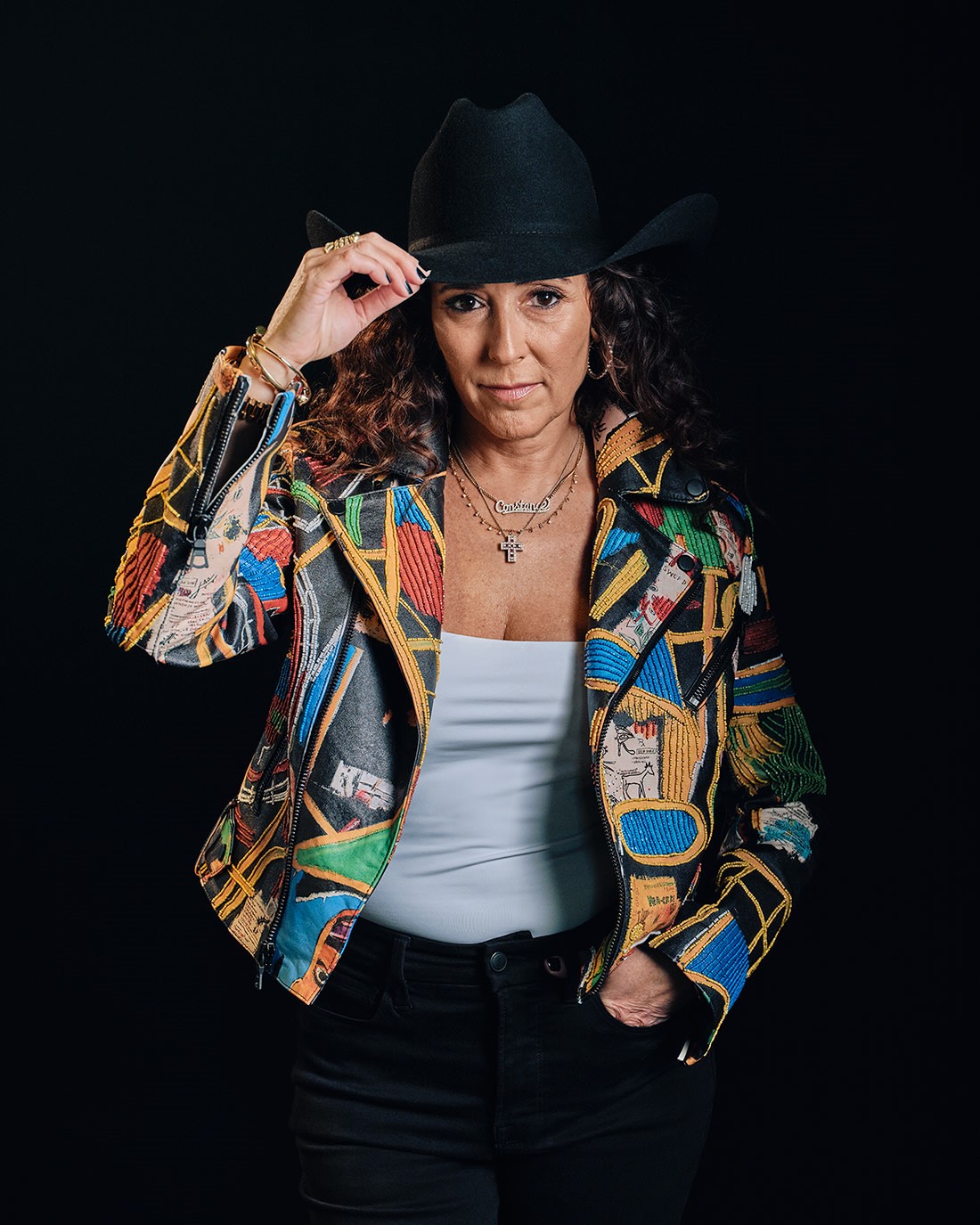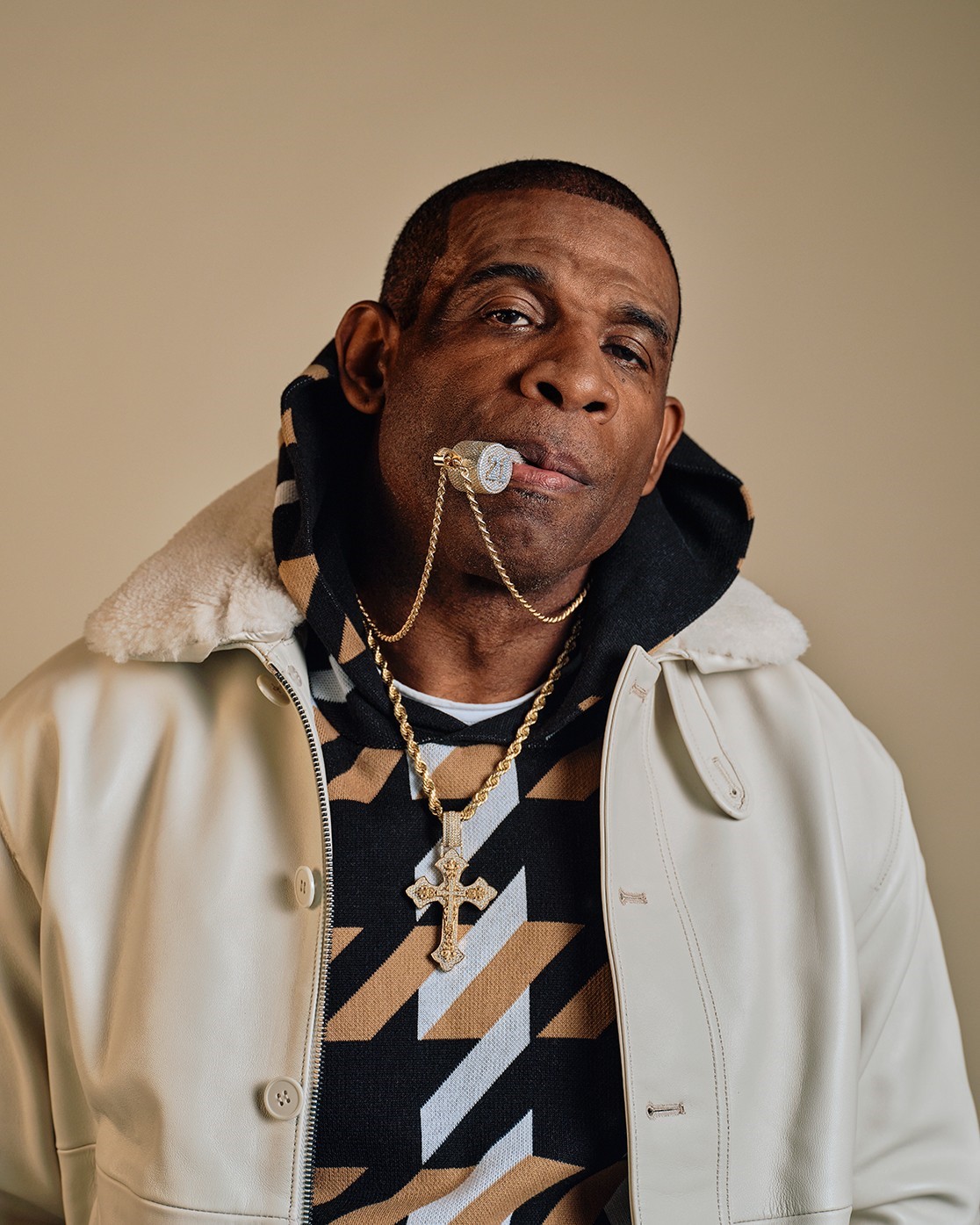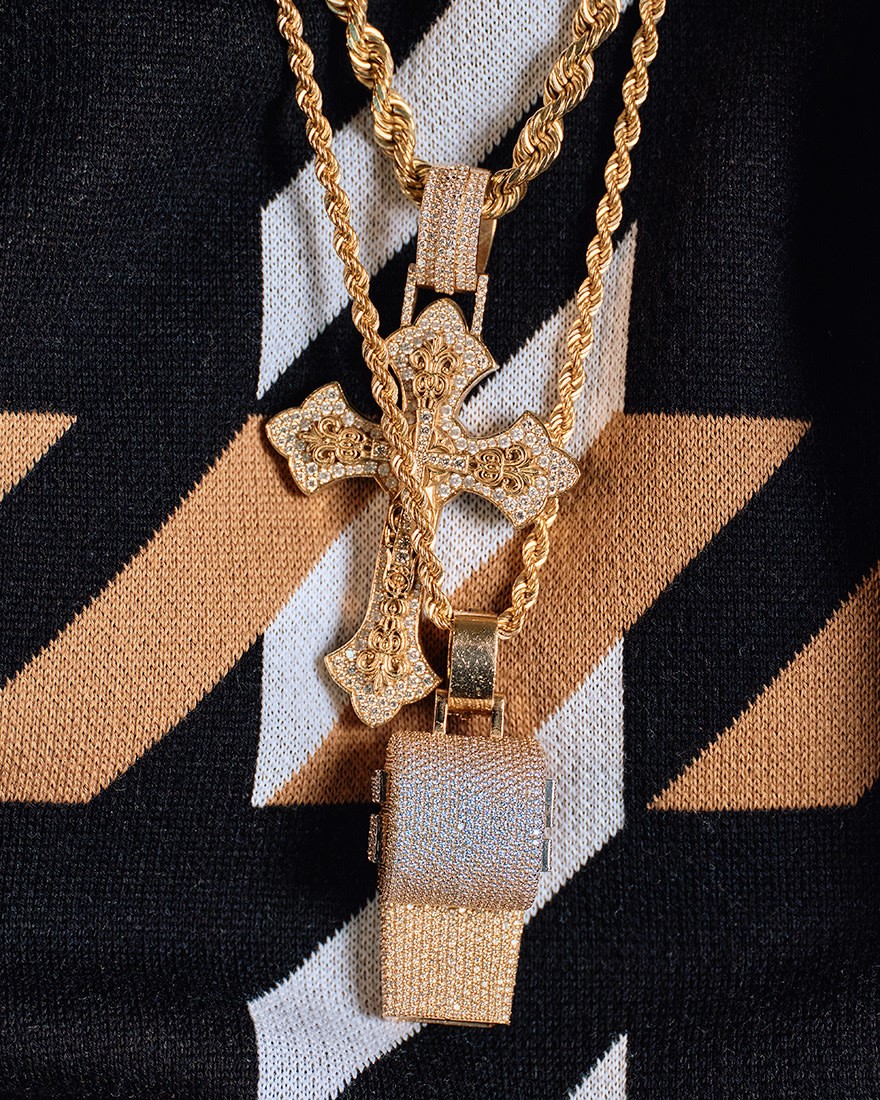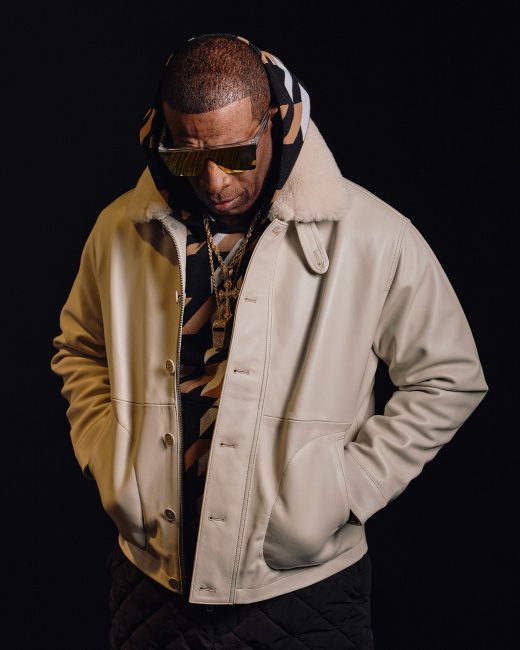What Deion Sanders learned from his first losing season as a college coach
By Paul Mueller
It’s been nearly 365 days since the University of Colorado brought Deion Sanders to Boulder on a five-year, $29.5 million deal to be the head coach — nay, the CEO — of its football program. Since then, he’s sent shock waves through college football. He led the Buffaloes—who won just one game in 2022—to a 3–0 start, and in the process, made Boulder the center of the college football universe. He brought millions of eyes (and dollars) to the school and swagger and celebrities to the sidelines. He made Colorado football the hottest ticket in sports.
This week, for his efforts, Sanders was named Sports Illustrated’s Sportsperson of the Year.
Early success and attention aside, the buffalo-size elephant that must be addressed this offseason is that the team floundered down the stretch, losing eight of its last nine games and finishing 4–8. “We just simply, truly, don’t know how to win yet,” Sanders said after one late-season loss.
When I asked him about what he and his team could learn from the losing skid, Sanders, who eschews typical coach-speak, said, “You gotta realize that everybody in here hadn’t had this type of attention in their lives. And this attention, sometimes, is intoxicating. Some of these [coaches and players] hadn’t been in a situation where you’re on television every weekend and you got to put up or shut up . . . they’re getting to see that. And they’re getting to see themselves.”
Sanders—a two-time Super Bowl champion and the only athlete ever to play in both the Super Bowl and the World Series as well as the only athlete ever to score an NFL touchdown and hit an MLB home run in the same week—does know how to win, and how to handle the attention that comes with it.
Rebranding
At 56, Sanders says he’s in the third quarter of his life. In the first quarter, he was “Prime Time”—the two-sport star who donned gold chains and a Jheri curl and had style and swagger that, throughout the ’90s, transcended sports. Then, after more than a decade in Major League Baseball and a Hall of Fame NFL career, he graduated from pro sports and simply became “Prime”—a cultural icon who stepped out of the spotlight, turning down multiple television opportunities in major markets to stay home in Dallas and focus on being a father.
Now, for his third act, he’s rebranded as “Coach Prime.”
“There’s a lot of young kids out there who don’t even know me from playing the game,” Sanders said. “They know me from Aflac. They know me from KFC. They know me from brand partners. And they know me from Coach Prime.”
Still, it’s hard sometimes to separate Coach Prime from earlier iterations. There are differences, sure. He’s an elder statesman now—older, wiser, as much a father figure as a cultural beacon. But he’s still flashy. Still unapologetically authentic. And he’s still a marketing machine, for himself and the brands with which he aligns.
This evolution can largely be attributed to his business partner and manager, Constance Schwartz-Morini. Together, they’ve established Coach Prime as one of the most powerful personal brands in sports, and Colorado football has been the primary beneficiary.
So, one year into Coach Prime’s tenure in Boulder, let’s take a look at what he and Schwartz-Morini have built, how they’ve built it, and what we can learn from their wins, losses, and overall brand-building playbook.
A pit bull in pumps
If you come across Constance Schwartz-Morini on a gameday, depending on when you catch her, you might meet a very different person. You could rub elbows with the “consigliere,” as Snoop Dogg calls her. You could take marching orders from “the Boss,” per Michael Strahan, or you could brainstorm with “the visionary,” Sanders’s moniker of choice.
When I first met her, before a home game at Folsom Field in Boulder, Colorado, I met the “pit bull in pumps,” another Sanders favorite.
I was wandering the sidelines pregame when I spotted her, on a beeline to somewhere. We recognized each other and she stopped to provide a warm smile and a kind welcome. Then, her face changed. “Excuse me,” she said, holding up her index finger as if to say, hold up. “I need to go yell at somebody.” She disappeared into the crowd and emerged moments later, presumably having just chewed somebody out, smiling and walking purposefully to wherever she was needed next.

Like Sanders, Schwartz-Morini is a polymath—a serial creative and an innovator who exudes a confidence and an I mean business-ness that’s undeniably magnetic. The two first met during Schwartz-Morini’s 10-year stint working in television programming and marketing at the NFL. She moved on to be a VP at a talent management agency, where she guided Strahan’s transition from Super Bowl champion to modern-day media mogul and managed Snoop Dogg as he began to transcend music and popular culture. She helped launch the Snoop Youth Football League, which occasionally played against Sanders’s Truth youth football program.
After one of those games, Sanders, a friend of Snoop’s who was looking for new management, called Schwartz-Morini and asked who handled the rapper’s marketing and PR.
“I do,” she said.
And a partnership was born.
In 2011, Schwartz-Morini and Strahan cofounded SMAC Entertainment (which stands for Sports, Media, and Culture). Today, SMAC represents Strahan, sportscaster and entrepreneur Erin Andrews, and hip-hop artist Wiz Khalifa, among others.
Including, of course, Sanders.
The rise of ‘Coach Prime’
Schwartz-Morini immediately went to work on her vision for Coach Prime. Sanders was working as an NFL Network analyst at the time while coaching his Truth League, the youth sports program he started in Dallas. Part of Schwartz-Morini’s plan for Sanders involved television—with that personality, why wouldn’t it? Sanders appeared in multiple Super Bowl ads in the early years of their partnership, but Schwartz-Morini admits that early on, it was difficult to build momentum.
“We had to figure out what he could do—and that he wanted to do—while staying in Dallas to coach the kids,” she said. “All the TV shows were in New York and L.A. So he had a lot of opportunities that he passed on over the years because of his commitment to coaching the kids.”
Sanders says he and his family almost moved to New York at one point for television opportunities.
“I could have done talk shows,” Sanders said. “But I’m not a New York-type person. I’m a country boy with a city swag, man. When I have to put on my suit and do what I gotta do, I go do that. Because that’s what I’m called to do. But away from the game—away from the names—I’m the totally opposite character.”

Sanders’s “country boy” persona was perfect for Texas, where he coached his sons through high school football. But in 2020, with his youngest son, Shedeur, preparing to graduate, Sanders began plotting his next move. He reached out to the athletic director at Florida State University, where he played in college, and asked about helping them recruit.
When he told Schwartz-Morini about the idea, she didn’t hold back. (Spoiler: She never does.)
“Why would you help someone else recruit?” she recalls saying. “You should just be a head coach.”
It’s a moment she compares to when Strahan filled in for Regis Philbin alongside Kelly Ripa on Live!—his first foray into mainstream daytime television. “He came back to the dressing room,” she recalls, “and I said, ‘That’s it. This is what you’re going to do.’”
“I just get these visions,” she says, “and it’s like, ‘Why not?’”
College programs didn’t share her vision for Coach Prime, and they didn’t line up to hire a coach whose only experience had come at the high school level. So Schwartz-Morini spun her Rolodex, worked the phones, and did what she does best: sold the vision. She landed Sanders the job at Jackson State University, a historically Black college that plays in the NCAA’s second tier of Division I. And in three seasons at Jackson State, which included coaching his sons Shilo and Shedeur, Sanders turned a 4–8 program that hadn’t had a winning season in seven years into a two-time conference champion, completing an undefeated regular season in 2022 and appearing in two consecutive bowl games.\
As Sanders brought Jackson State back to national relevance, Schwartz-Morini elevated the Coach Prime brand. She helped bring multiple new sponsors to the school, including Pepsi, American Airlines, and Procter & Gamble. At the same time, she landed multiple brand partners for Sanders himself, like Gillette and Aflac. They also launched an Amazon Prime series called Coach Prime, with season 1 documenting his final, undefeated regular season in Jackson.
Going to Jackson State was exactly what Schwartz-Morini needed to accelerate the growth of the Coach Prime brand.
The move to Colorado supercharged it.
Shocking the system
When Sanders arrived in Boulder, the Coach Prime brand was a rocket ship that had long since launched.
Colorado football was still on the tarmac.
“Deion is the CEO of this program,” Colorado athletic director Rick George said. “I’ve given him the latitude to do what he thinks he needs to do to turn this program around. That’s why I hired him to run this football program—to put us back on the national stage.”
The Buffaloes were coming off a 1–11 campaign when Sanders took over, having mustered just four winning seasons in the last 20 years. To maximize both his immediate and long-term impact, the Coach Prime brand would have to do the heavy lifting. Marcus Collins, a marketing strategist and author of For the Culture, calls it achieving “brand congruence.”
“As a leader, you have to start with what you believe,” says Collins. “You have to ask yourself, ‘What do I believe? How do I see the world?’ Then you have to say, ‘All right . . . now who are the people who believe what I believe?’”
In Sanders’s first meeting with Colorado players, belief was scarce. He implored those who weren’t on board with his vision to enter the transfer portal and find a new place to play. Many of them did. Only nine scholarship players from 2022 returned to play under Sanders in ’23. All in all, he brought in 87 new players, most via the transfer portal. It was the largest roster overhaul in college football history.
“A CEO’s job is to curate a company—a gathering of people who see the world similarly,” Collins says. “So there are some fundamental truths that you all have to share. Like, if you’re at Nike, every human body is an athlete. Full stop. If you don’t believe that, you’re at the wrong company. That ideological part is so important because that is the foundation of culture—that we have a shared view of reality. So, if you have a point of view about the world and a gospel that you want to preach, and you know some people don’t believe in that gospel, you’ve got to get rid of them.”
But it wasn’t just “out with the old and in with the new.” It was about bringing in the right kind of new. Still, Sanders’s use of the portal drew the ire of some college coaches.
It also drew eyeballs.
Content is king
In a world where coaches traditionally shelter players and protect them from the media, Sanders, who knows the power of personal branding, puts his players out there. They don’t wear their names on the backs of their practice jerseys; they flash their Instagram handles. There are cameras at practices and in team meetings, and they follow Coach Prime wherever he goes on campus to capture content for his Amazon series. (Season 2, which premieres December 7, looks back at his first year leading the Buffaloes.) The joke around campus is that you know when Coach Prime is coming because you can see all the cameras.
“Damn straight you can see all the cameras,” Schwartz-Morini said. “We’re trying to help this team. We’re trying to recruit. We’re highlighting the kids that are here now.”
What doesn’t make it into the Amazon series or social is sure to be featured on the YouTube channel Well Off Media, which has nearly half a million subscribers and is run by Sanders’s eldest son, Deion Jr.
That first meeting Sanders had with Colorado players? Video of that address went viral, registering more than 4.7 million views on Sanders Jr.’s YouTube with countless copies and cuts netting hundreds of thousands more. Throughout the year, Colorado press conferences became must-see TV. When you have a coach who says what’s on his mind, every time you put a camera or a microphone in front of him, content happens.
“If the team plays like hot garbage, [Coach Prime] is up there telling you they played like hot garbage,” Schwartz-Morini said. “Coach only knows how to speak the truth, and that’s the same with all of us.”
It’s a core tenet, says Schwartz-Morini, of the philosophy that drives her, Coach Prime, and SMAC Entertainment at large: Be authentic. In my two interviews with Schwartz-Morini and Sanders, they mentioned the words truth and some variation of authentic a total of 22 times combined. Normally, that’s taboo and would raise a red flag and set off any functioning bullshit detector.
Take brand builder and culture expert Chuck Welch, for instance.
“I fucking hate the word authentic.”
That’s what Welch, founder and chief strategy officer at Rupture Studio, told me—unprompted—in an interview. It’s a natural response to a word that, especially when discussing branding and culture, can often ring hollow. But with Schwartz-Morini and Sanders, it somehow . . . doesn’t.
So, what makes them the exception?
“I don’t like [that word] because you can feign authenticity,” Welch continued. “But Deion’s different because . . . he has integrity. Because he can show up as himself. Very few Black people, let alone Black men, can show up as themselves on a national stage. But Deion’s one of one. He’s a star. He’s not tucking his lip. He’s not speaking in a corporate way. He’s fucking Deion Sanders. He’s talking his shit, and he’s winning, and he’s taking his losses, and he’s being himself.”
Translation?
Deion Sanders can do shit nobody else can.
Who else can wear a gold whistle and a cowboy hat, sell out Nike gear at a school with no previous national presence, move $1.2 million worth of mirrored sunglasses (in one day, no less), have his whole family cruise through a drive-through in a golf cart in a KFC commercial, and—during the same broadcast—appear alongside Nick Saban (legend) in an Aflac ad . . . and somehow make none of it feel forced or fake?

Coach Prime can. And Schwartz-Morini knows it. This is part of her genius. Her brand-building strategy doesn’t blanket her client portfolio. It’s tailored to each individual personality. Because commercials, endorsements, merch—that’s content, too. And it’s either contributing to your brand, or it’s taking away from it.
When Sanders was at Jackson State, for instance, he dealt with blood clots in his left leg. Doctors were able to save his leg—and his life—but amputated two toes on his left foot. When he got back to coaching (almost immediately), he needed a special motorized wheelchair that was difficult to get. He was able to secure it through Aflac. Soon after, they became brand partners.
“As a consumer, you can sniff out when someone’s just getting a check,” Schwartz-Morini said. “That’s not good for the talent, and it’s not good for the brand. It all comes back to authenticity.”
“When it’s the right partnership,” she added, “you’re not looking at the contract and checking a box saying, ‘Oh, I’m supposed to do three [social] posts, so I’m only doing three posts.’ That’s not who you wanna be in business with. Those partnerships don’t work. Whoever we’re partnering with, we need to elevate one another, not just complement one another. When you have a partner—whether it’s a business partner, whether it’s your client—that trusts in your crazy ideas and crazy visions, anything’s possible, right?”
‘The prime effect’
Most of America was introduced to Coach Prime and Colorado football this fall, when the Buffaloes notched a 45–42 win over 17th-ranked TCU—which was fresh off an appearance in the national title game—in the season opener. The moment that clock hit zero, the Colorado hype train went into overdrive. ESPN’s College GameDay came to Boulder for just the second time ever. (The Rock starred as the week’s guest picker and later gave a locker-room speech alongside Sanders’s mom.) Fox’s Big Noon Kickoff show broadcast live from Colorado three times and from four of the Buffaloes’ first five games.
By midseason, the Buffaloes had cruised to a 4–2 record, and Sanders’s face was everywhere, from TV commercials to 60 Minutes to the cover of Time magazine. Comedian Kenan Thompson parodied Sanders on Saturday Night Live. Russell Wilson dressed up as Coach Prime for Halloween.
The school sold out every home game for the first time in history and season tickets sold out for the first time in 27 years. Ticket revenue jumped $14 million from 2022, helping the school exceed its $37 million goal. The team’s Instagram account went from 63,000 followers to more than 1 million. Merchandise sales rose 892%. The Colorado sidelines looked more like a red carpet some nights, with celebrities like the Rock, Lil Wayne, Rick Ross, and Michael Irvin making appearances.
George, the current AD, was a recruiting coordinator at Colorado when it won a national championship in 1990. “I knew what this place could be,” he said. “And just seeing it get back to that excitement and that feeling from when we won the national championship . . . it felt like we were back to that era. It’s exciting for me to see because I’ve lived it once. But a lot of our younger fan base hasn’t seen this kind of excitement.”
Schwartz-Morini says she would routinely text her partners at Nike after big wins and big moments. The texts would read, “Fire up the factories.” “That’s all I would send,” she said. “Because we could see what was happening.”
For Colorado football, it was a whole new world.
For Sanders and Schwartz-Morini, it’s just what they do.
“Everyone’s talking about how we came out of nowhere overnight,” Schwartz-Morini said. “They forget that we were in Jackson for three years. Everyone keeps hitting me up, and they’re like, ‘Oh, how cool is it that these celebrities are coming?’ And I’m like, ‘You don’t get it. These are people that believed before [Coach Prime] got here. The Rock came to Jackson, Mississippi, to do the XFL’s combine last year. So he was a believer back then. Cedric the Entertainer, Anthony Anderson—these are friends of his from before, just wanting to come and support.”
Everything Sanders touched was turning to gold, and his “Midas touch” hit a fever pitch ahead of the team’s rivalry game against Colorado State. Jay Norvell, the opposing coach, criticized Sanders for wearing sunglasses during interviews.
Sanders is known for wearing sunglasses. It’s part of his brand. “I always wear shades,” Sanders said. “Especially when my eyes are tired. Because your eyes are your entrance point . . . people can tell everything by your eyes. So when I would have shades on after the game in a press conference, I’m not trying to just be cool, or be fly. I’m tired. And I just don’t want to look that dern tired.”
Sanders and Schwartz-Morini had been working behind the scenes with a new brand partner, Blenders Eyewear, on a line of signature Coach Prime shades that was set to launch later in the year. “I remember coming into the pros and doing interviews,” Sanders said. “I always wore shades. So, you know, the deal with Blenders is really authentic. That stuff is real. It’s genuine.”
And when Norvell’s comments hit the airwaves, Schwartz-Morini saw the opportunity right away.
“That’s a marketer’s dream,” she said. “We called [Blenders] and said, ‘We’ve gotta go now!’”
While Blenders expedited the product launch and began taking preorders, Sanders shifted into promo mode. He gifted Coach Prime shades to his entire team. The video, published on Well Off Media’s YouTube channel, went viral, netting more than 250,000 views. Sanders went on to gift sunglasses to media personalities Stephen A. Smith, Shannon Sharpe, and Pat McAfee, as well as the Rock, all on live television.
The result: Blenders did $1.2 million in sales—in one day.
Sanders himself isn’t the only one cashing in on endorsement deals. With the rise of NIL (name, image, and likeness) rights in college football, players are getting paid too. Shedeur Sanders is ranked second in NIL valuation behind only LeBron James’s son, Bronny, who plays basketball at the University of Southern California. Shedeur’s NIL valuation is reportedly $3.8 million. Shilo Sanders and Travis Hunter—who, along with Shedeur, are represented by SMAC for all NIL opportunities—have also thrived. The three have landed NIL deals with companies like Beats by Dre, Brady Brand, Gatorade, and KFC. Shedeur just signed a new deal with Smoothie King, and he and Shilo recently appeared together in a new Google commercial.
For better or worse, NIL rights have changed college football recruiting forever. The ability to provide NIL opportunities for players is critical for attracting top talent. Colorado has that ability, largely because of the strength of the Coach Prime brand, and because Sanders has the ear of an entire generation.
Preach the gospel, speak the language
Another one of Schwartz-Morini’s core tenets for building a brand is to know your audience. “And make sure that you’re speaking to them and not at them,” she says.
When you speak to Sanders, he gives you his full attention. He has a way of making you feel like the most important person in the world—like you’re the center of the universe. He speaks to you. This charisma is one of his many gifts. Coupled with the always-on content strategy he and Schwartz-Morini have developed, he’s able to reach recruits where they are—on social media—and not just sell his vision, but bring it to life. Make it tangible.
“He’s got a unique skill set that gives him an advantage in recruitment because he’s connecting to the modern player in a modern way,” Welch said. “So if he shows up in your home and you’re a five-star recruit, you’re excited to go play for Deion Sanders, because he’s speaking your language.”

“A lot of these [coaches] are old white guys, you know?” Welch added. “Like Nick Saban . . . that guy’s success speaks for itself. But do I wanna hang out with Nick Saban? Do I wanna be Nick Saban? Hell no. I wanna be Deion Sanders. If I’m a young kid, that’s the type of life I want.”
The Colorado vision will be a slightly more difficult sell for Sanders ahead of his second season in Boulder. Despite the hot start and all that national attention, the Buffaloes lost eight of their last nine games to close out the season, finishing 4–8 and failing to qualify for a bowl game. The program has already seen a wave of recruits de-commit and players announce their intention to enter the transfer portal. Per The Athletic, some Pac-12 coaches are predicting another down year in 2024, with one coach saying, “It’s gonna get dark for Colorado.”
It’s something Sanders is sure to lean into in his recruiting pitch.
“Deion Sanders is basically personifying the idea of perseverance—of grit as an underdog,” Collins said. “And therefore, the team is no longer just Colorado’s football team, right? They are signifiers of the underdog. And what Deion Sanders does is preach the gospel of what it means to be that. And people who see themselves as such go, ‘Yo, I rock with that. That’s my kind of brand.’ That’s really, really powerful.”
He’ll also be preaching belief.
“We’re gonna go make it happen,” Sanders said. “And everybody around this inner circle is gonna believe. If you don’t believe, you’re gonna get up out of here, because we have the faith that can move mountains . . . that’s just the way we function. That’s the way we move. That’s the way we think. And we don’t fluctuate with that thought. We don’t procrastinate with that thought. We go get it.”
Nothing happens overnight
“We already won this season,” Schwartz-Morini said in early November. Rick George said the same. Sanders, too.
“Winning has so many different variances in my book,” Sanders said. “I would love to be undefeated right now . . . but when I sat at the head of the table and I said, ‘We’re gonna win, and we’re gonna win right now,’ it’s not just about the games. It’s about the GPA. It’s about the lifestyle of these kids. It’s about them not being incarcerated. Them not impregnating young women without being married to them. It’s so many things that involve winning other than the scoreboard.”
In the spring, Sanders’s first semester with the program, Colorado achieved a 2.932 team GPA, the highest in team history. For any college program, that’s a win. And while 4–8 is not where you want your program to be, it’s an improvement on 1–11.
And remember all that revenue generated early in the season, all that merch that got sold? That’s money in the bank. In September, USA Today estimated that Sanders was worth more than $280 million to the university, including being responsible for $249 million in earned media value.
Again, winning.
“The brand of Colorado football is bigger than the performance of Colorado football,” Welch says. “And when that gap closes, then it’s over.”
“Nothing happens overnight,” Schwartz-Morini said. “I’m focused on next year, and year 3, and year 5—for both Colorado and for the Coach Prime brand.”
Now that it’s December and Colorado’s season is over, people are still talking about them. Still writing about them. And while many are taking advantage of the opportunity to kick Coach Prime and Colorado while they’re apparently down, Sanders is taking names—“keeping receipts,” as he says. Because if you ask him, the Buffaloes are just getting started.
“We getting ready to start cookin’,” Sanders said after the team’s loss in the season finale. “I could not grow if I didn’t go through what we’ve gone through. I could not prosper if I did not glean from what transpired this season. I could not be who I am if I did not have these tasks at hand. I’m truly thankful. This is not the first challenge I’ve had in my life, but I know how I finish. I know how this is gonna end. I promise you.”
(17)



